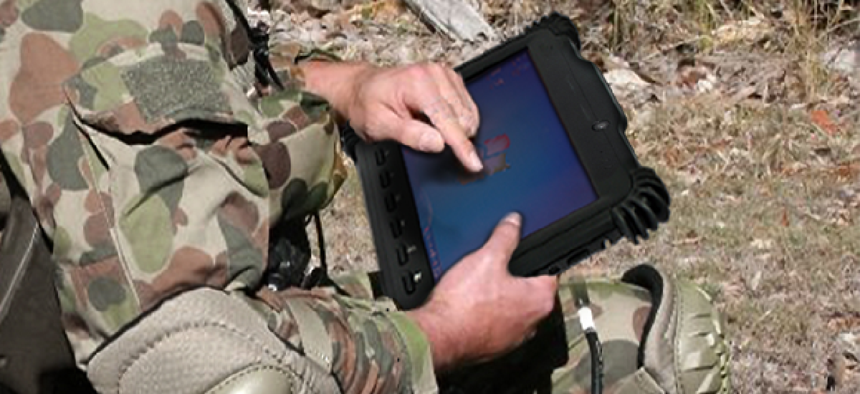Why purpose-built computers are the future for government


Connecting state and local government leaders
These devices can address demanding environments, application-specific concerns as well as security and privacy issues facing government agencies.
The widespread adoption of computers has had arguably one of the greatest influences on government in the last 20 years. From conventional desktops to contemporary tablets, computers have improved workflows and heightened efficiency in local, state and federal agencies.
In addition, mobile devices in combination with significant improvements in network connectivity have dramatically increased the usefulness of computers and improved communication and information sharing within agencies and between agencies. Rugged tablets are bringing handheld computers into the military and field operations for vehicle management, public sector operations and transportation -- enabling instant data capture, storage and transmission in environments.
As more agencies depend on these devices, it is clear that specialized devices are not a preference, but a necessity. There are three key reasons purpose-built computers are rapidly growing in appeal to government and military agencies.
1. Unique, demanding environments
General-purpose computers are not designed to meet the unique demands of the various verticals in which they are employed. Computing in the public sector -- especially for on-location work involving the military -- usually necessitates a Common Access Card reader to verify identification. Beyond this capability, computing environments in the military and government are highly varied, creating unique demands on the underlying hardware and software that typical “one-size fits all” computers cannot accommodate.
Troops that work outdoors or in other demanding environments require hardware that can endure drops, vibration, dust, temperature and humidity ranges that limit the effectiveness of machines that are not specifically designed to deal with such extremes. Outdoor use of computers also necessitates displays that counteract the glare on the screen caused by sunlight. Based on the environment, many government agencies require devices that have ingress protection ratings certifying them as resistant to water, dust, humidity and extreme temperatures as well as MIL-STD-810G certification to ensure vibration and shock resistance.
Purpose-built computers can provide this functionality out-of-the-box and can be deployed to entire units or agencies that share these specific needs.
2. Security and privacy
There are several features of off-the-shelf computers that can compromise the security, privacy and productivity of government users. Wireless and radio capabilities found on general purpose computers (Bluetooth, RFID, Wi-Fi, etc.) can create security problems both for the endpoint device and an organization’s larger network. Cameras cause a similar issue for any agency that requires internal operation privacy. Also, many general-purpose devices come with applications for popular social media sites such as Twitter, Facebook and others, which can potentially decrease productivity while encouraging data vulnerability.
Purpose-built computers can provide a unique combination of software and hardware security to address these issues. For example, devices can be built to only run trusted applications, operate in camera privacy mode, trigger an instant blackout in certain conditions and support media sanitization that meets standards of both the National Security Agency and the military.
3. No add-ons
Organizations using general-purpose computers frequently require add-ons: gadgets or functionality that augment the basics to meet specific workflow requirements, such as CAC readers, MSR readers and barcode scanners. But this piecemeal approach is disadvantageous for several reasons. First, it adds up-front costs for agencies, and, second, these supplemental pieces of hardware can easily break, get lost or stolen --resulting in downtime and more costs.
Purpose-built devices holistically address all the computing needs of users with a single device, which decreases downtime and cost over time.
The bottom line
Purpose-built computers can address demanding environments, application-specific concerns as well as security and privacy issues facing government agencies. Moreover, this approach takes a holistic approach based on common workflow processes without tenuous add-ons. Purpose-built devices exceed the capabilities of off-the-shelf options while tailoring functionality to specific use cases.
NEXT STORY: NYC wants more data from Uber




